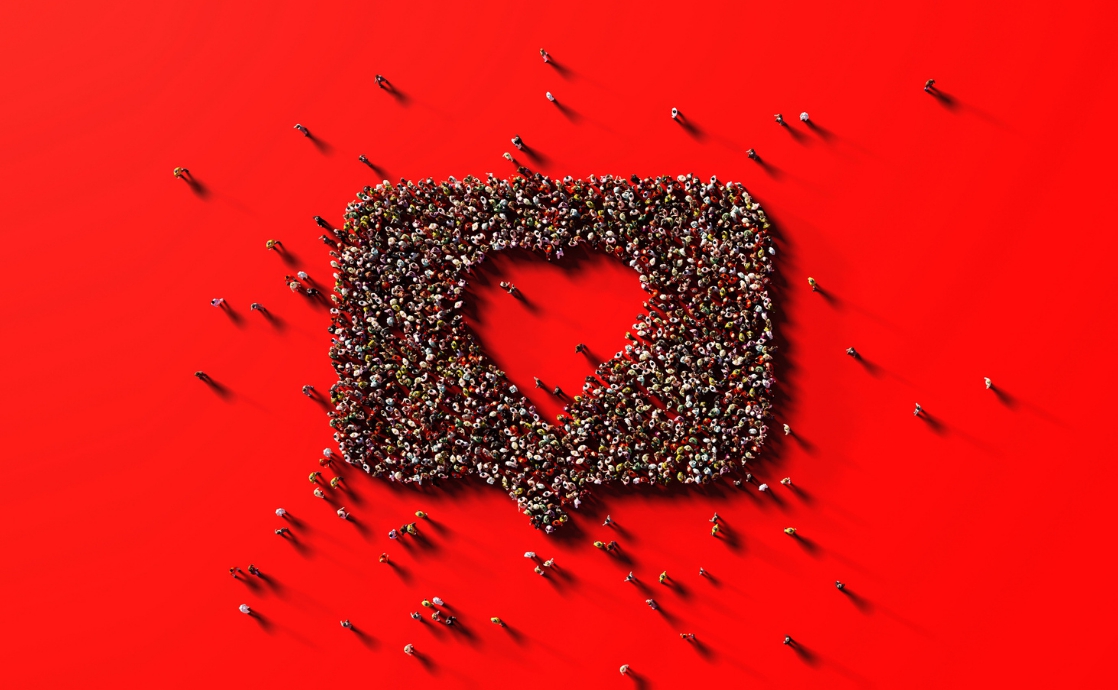The views expressed in our content reflect individual perspectives and do not represent the authoritative views of the Baha'i Faith.
We all begin life with love for our mother and father. In healthy children, that love expands to siblings, friends, teachers. Finally, the spiritually mature person learns to love humanity.
In order to demonstrate this love, we must understand our true nature, that we are created noble and in the spiritual image of the Creator. When we recognize the same image in others, we are drawn to them in a bond of love.
Finally, the realization that we are drops of the same ocean dawns upon us. When this idea grows into a global consciousness, the concept of “the other,” of “us and them” evaporates, and is replaced, as the Baha’i writings point out, with a consciousness of the oneness of humanity. Abdu’l-Baha put it this way in a talk he gave at Columbia University in New York:
The most important principle of divine philosophy is the oneness of the world of humanity, the unity of mankind, the bond conjoining East and West, the tie of love which blends human hearts.
Therefore, it is our duty to put forth our greatest efforts and summon all our energies in order that the bonds of unity and accord may be established among mankind.
To love and be loved by others and to treat them as we would like to be treated is the golden rule of every religion. This principle is so powerful that our love for our fellow human beings can transform our current world into paradise, into the promised “Golden Age of humanity” – which we can bring about by summoning “all our energies” to build those “bonds of unity and accord” Abdu’l-Baha encouraged us to develop.
Once a poor man admonished his three-year old daughter for wasting a roll of gold wrapping paper. Money was tight, and he became irritated when the child tried to decorate a box. Nevertheless, the little girl brought the wrapped box to her father the next morning and said, “This is for you, Daddy.”
Embarrassed by his earlier overreaction, he opened the box and saw that it was empty. Irritated again, he said, “Don’t you know that when you give someone a present, there’s supposed to be something inside it?” The little girl looked up at him with tears in her eyes and said, “Oh, Daddy it’s not empty. I blew kisses into the box, all for you.”
The father was crushed. He put his arms around his little girl, tenderly held her, and begged her for forgiveness. He kept that gold box by his bed for years. Whenever he was discouraged, he would take out an imaginary kiss and remember the love of the child who had put it there.
In a very real sense, each of us has been given a gold container filled with unconditional love and kisses. There is no more precious possession anyone could have.
Human love comes in many shades. There is romantic love, love for your country, and love for your religion. Love drives passion in us, but it can also be blind. It can betray us and lead us astray into destruction. Worst of all, when love becomes an obsession, it creates an obstacle on the spiritual path. This kind of misplaced love has led many to disagreement, disunity, and even violence. Passion is a good thing, but it must be tempered with the kindness and mindfulness of real love and compassion.
What is the highest expression of love? Perhaps it is sacrifice, the act of giving up something valuable for the sake of something that has a higher, or more worthy claim. A lover’s greatest desire is to sacrifice for his beloved. When this yearning is fulfilled, the “insistent self” evaporates in the face of a higher Being. This is bliss. The love and sacrifice that the messengers of God demonstrate to their Creator are the best examples history can provide.
The Baha’i Faith aims to bring about the unity of all people – which, as Abdu’l-Baha said, can only happen through the power of love:
The more love is expressed among mankind and the stronger the power of unity, the greater will be this reflection and revelation, for the greatest bestowal of God is love. Love is the source of all the bestowals of God. Until love takes possession of the heart no other divine bounty can be revealed in it.
This strong connection between love and deeds means that love of any kind – whether it is for our parents, family, country, friend, and spouse – should lead us to action. Simply saying, “I love you,” is never enough. Parenting is a good example. Successfully raising a family means making many sacrifices. The quality of care and sacrifice shows the depth of one’s love for family members.
Many paths can lead us to human upliftment – but one of the most challenging is to love all humankind. In contrast, caring for our family or ethnic group is far easier. How do we love everyone on this planet to the extent that we care deeply for their well-being? Some might think such a universal love is not attainable, but Baha’is believe it is possible, and try to demonstrate it in their actions every day.
















Comments
Sign in or create an account
Continue with Googleor